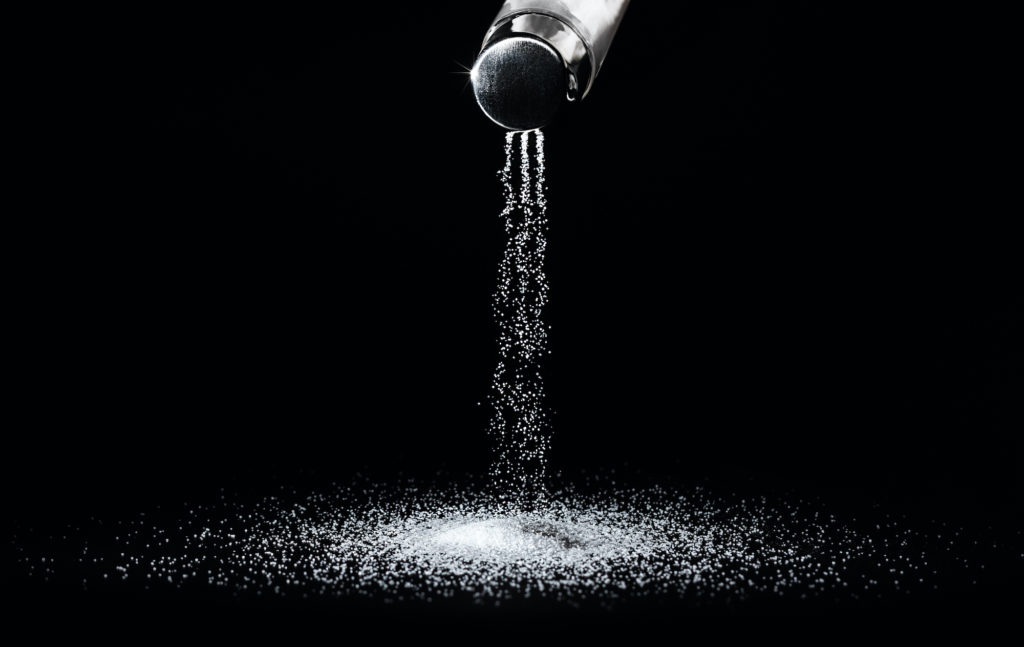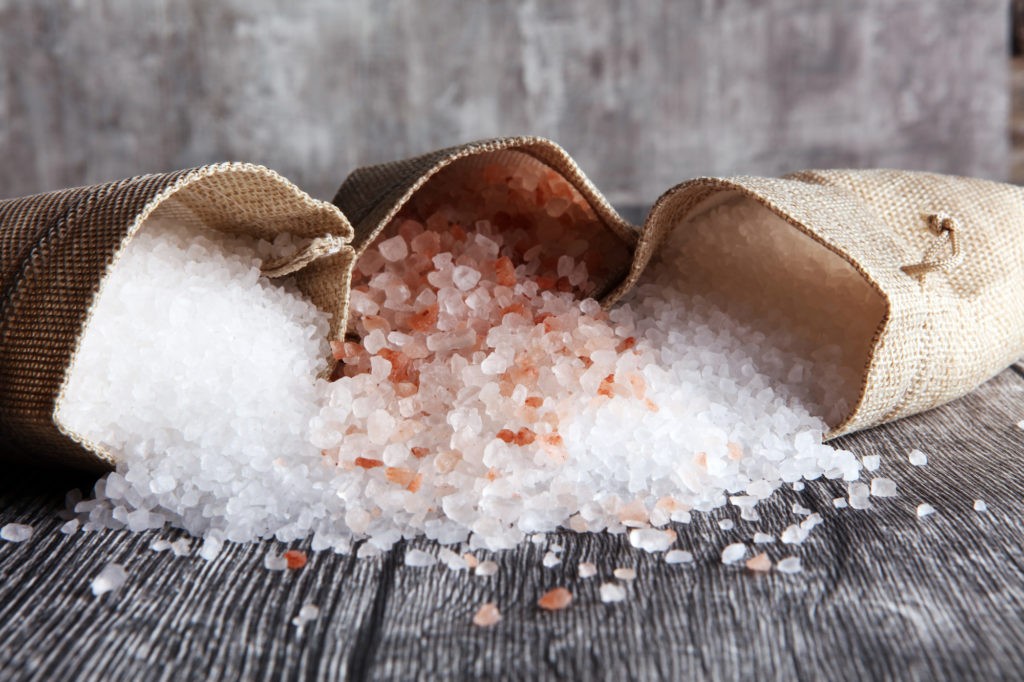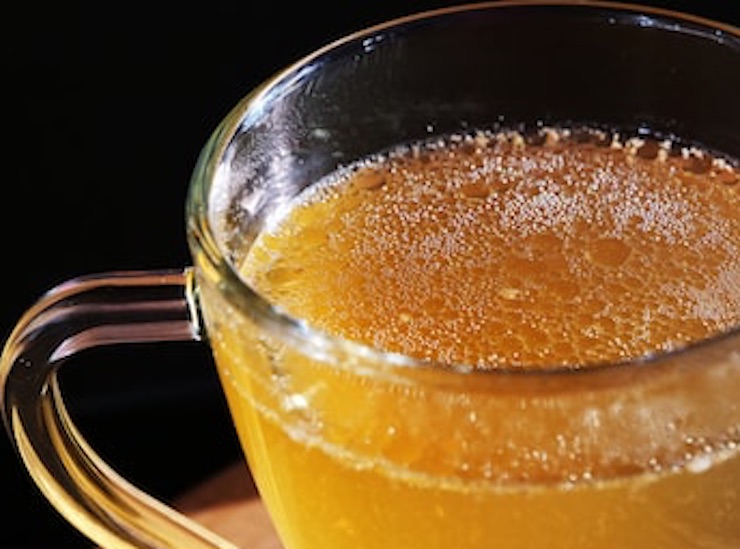A
Amy Dirks
Guest
Shake it Like a Salt Shaker
In the literature of nutrition, sodium is like the word “fats” and there’s consumer confusion around whether it’s bad or good for you, how much you should have/day, what are the best sources, and how to replenish if you’re an athlete.
Here is former MLS Sporting Kansas City Nutritionist Amy Dirks on why the Mediterranean diet is a great choice for soccer players of all ages.
Read: MEET SOCCERTODAY’S NUTRITIONIST AMY DIRKS – GREAT INFO FOR SOCCER PLAYERS OF ALL AGES
What is the Bottom Line on Salt for Soccer Players?
There’s not really a minimum daily intake so to speak but more like an upper limit of what you should try to stay under since most people tend to over-consume sodium in the form of processed foods (frozen foods, pre-made meals), fast foods, over-salting foods, and non-nutritious beverages.

Why is Sodium Good?
Sodium is actually a really important mineral that the body steadily regulates the concentrations of. Most notably to athletes, sodium is involved in muscle contractions. The claim of muscle cramping as a result of decreased sodium levels is significantly important, especially if you are an athlete that trains/plays outside in the heat or are an excessive sweater.
This is why most of the sports beverages concentrate on the electrolyte sodium.
However, keep in mind, many athletes drink these electrolyte beverages when it isn’t necessary as if it’s water, which can throw off electrolyte levels.
Sodium is also extremely important for blood volume, blood pressure, and nerve function, all of which attribute to overall health.
Too little sodium, usually due from dehydration from vomiting, diarrhea, hormones or medication can cause a condition known as hyponatremia. Did you know that you can cause this from drinking too much water and diluting your blood?! Most people don’t drink enough water but there can be the opposite effect! Nausea, headaches, confusion, and fatigue can all occur from this condition…definitely symptoms an athlete wouldn’t want to experience!
Read: SOCCER NUTRITION: BUILDING YOUR IMMUNITY IN THIS TIME OF COVID-19
Too Much Sodium?
As mentioned above, sodium can be found abundantly in the food supply. From table salt, to cured and processed meats, breads, pizza, snack foods, sandwiches, soups, cheeses, condiments, tacos/burritos, boxed mixes, and the list goes on.
It’s much easier to get too much sodium than too little these days.
2,400 milligrams or less is what is recommended for most people, but that needs to be individualized according to their genetics and lifestyle behaviors.
Since sodium is involved in the regulation of blood pressure, if you are someone with a genetic history of heart disease or high blood pressure, you should probably watch your sodium intake.
High blood pressure makes the heart work harder and can cause damage to arteries, including blood vessels to the kidneys since the kidneys are what clears the sodium.
Because too much sodium in the diet can cause an increase in the excretion of calcium, osteopenia and osteoporosis could result along the way and therefore is another reason too much is not healthy. With stress fractures being more common in sports such as soccer due to all of the running, being mindful of your sodium intake should be a priority.
Read: SOCCER PLAYERS: TOP 10 WAYS TO DETOX FOR BETTER PERFORMANCE

sea salt and himalayan in burlap. Crystals of salt on table
What are the Best Sources of Sodium?
Table salt is definitely the most common source of sodium in the diet but it does come in many other forms as well.
If you are going to salt your food, choose Himalayan sea salt or Celtic sea salt for additional minerals over a basic iodized table salt.
Pickles can be a decent source of sodium (have you ever heard of marathoners or athletes drinking pickle juice over pre-made sports drinks?).
Bone broth as well.
Use bone broth as the base for your soups since it is not only lower in sodium than chicken broth but also provides amino acids and collagen and gelatin for recovery in athletes. Sauerkraut is another good sodium source and since it’s a fermented food, it’s healthier for your gut too!

Read: SOCCER NUTRITION: BONE BROTH IS THE ULTIMATE RECOVERY DRINK
Some simple swaps besides bone broth for chicken broth, are raw nuts over salted/roasted nuts, lower sodium cheeses such as mozzarella and cottage cheese, low sodium canned goods, fresh meats over processed meats, homemade soups versus pre-made versions, using herbs and spices over salt to season foods, and opting for lower sodium juices/vegetable juices or making your own.
For most athletes, I encourage salting your foods, especially if you train outdoors, have multiple games in one day, or are a heavy sweater.
But, be mindful of this. If you are already eating a sandwich with soup and having orange juice with it, there’s most likely plenty of sodium in that meal that you wouldn’t need to add the extra salt.
Fresh is always best over processed and when it comes to sodium, it’s no exception so as I always try to do, I encourage you to think outside of the box or bag for overall health, performance, and recovery.
The post NUTRITION FOR SOCCER PLAYERS: IS SALT GOOD FOR ATHLETES? appeared first on SoccerToday.
Continue reading...
SoccerToday News from Diane Scavuzzo
